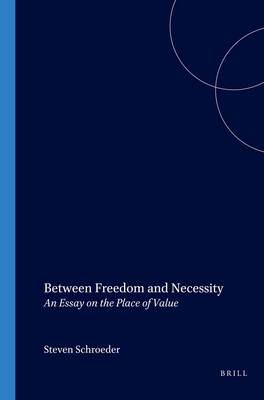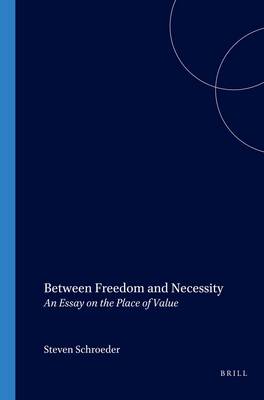
- Afhalen na 1 uur in een winkel met voorraad
- Gratis thuislevering in België vanaf € 30
- Ruim aanbod met 7 miljoen producten
- Afhalen na 1 uur in een winkel met voorraad
- Gratis thuislevering in België vanaf € 30
- Ruim aanbod met 7 miljoen producten
Zoeken
Between Freedom and Necessity
An Essay on the Place of Value
€ 65,95
+ 131 punten
Omschrijving
This extended essay joins an old conversation at the intersection of freedom and necessity. Though it takes place at the beginning of the twenty-first century by the "Christian" reckoning that has become an integral part of European identity, it will at times read like a conversation between classical Greece and nineteenth-century Europe. The cast consists of characters drawn from Aeschylus, Sophocles, Euripides, and Plato as well as the authors themselves - Plato, Aristotle, Locke, Hume, Kant, Kierkegaard, MacIntyre, and Nussbaum. Some of these writers have been associated with displaced, displacing claims of universality; but each is in place and in time in ways that are instructive for ethics. Myth, the matter of stories, becomes also the matter of critical reflection, which in turn is subjected to critical reflection. Every fragment of philosophy is a contribution to the reflection, and it is nothing if it is separated from the matter - the stories, the myths, and the characters (including us) who both make them and live in them.
Specificaties
Betrokkenen
- Uitgeverij:
Inhoud
- Aantal bladzijden:
- 148
- Taal:
- Engels
- Reeks:
- Reeksnummer:
- nr. 99
Eigenschappen
- Productcode (EAN):
- 9789042013025
- Verschijningsdatum:
- 1/01/2000
- Uitvoering:
- Paperback
- Formaat:
- Trade paperback (VS)
- Afmetingen:
- 150 mm x 220 mm
- Gewicht:
- 276 g

Alleen bij Standaard Boekhandel
+ 131 punten op je klantenkaart van Standaard Boekhandel
Beoordelingen
We publiceren alleen reviews die voldoen aan de voorwaarden voor reviews. Bekijk onze voorwaarden voor reviews.










